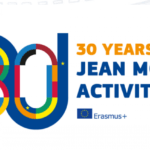In a few months’ time, many students around Europe will start a new higher education course. Hopefully the worst of the pandemic will be behind us.
However, everything indicates that higher education institutions will not be operating normally until the start of the next academic year at the earliest in many countries. Many education systems may have to abandon end of secondary school examinations. Cancellation decisions have already been taken in Ireland, the Netherlands, Sweden and Slovakia and the United Kingdom. Higher education institutions will therefore need to find new ways to admit students.
It is becoming increasingly clear that the covid-19 pandemic is forcing us to change the way we do almost everything – including admission to higher education. Countries have different practices in admitting students – some giving everyone with a secondary school-leaving examination certificate a right to higher education, others enabling higher education institutions to select students. Examinations, whether organised nationally or by higher education institutions themselves, play a big role in this process.







Leave a Reply